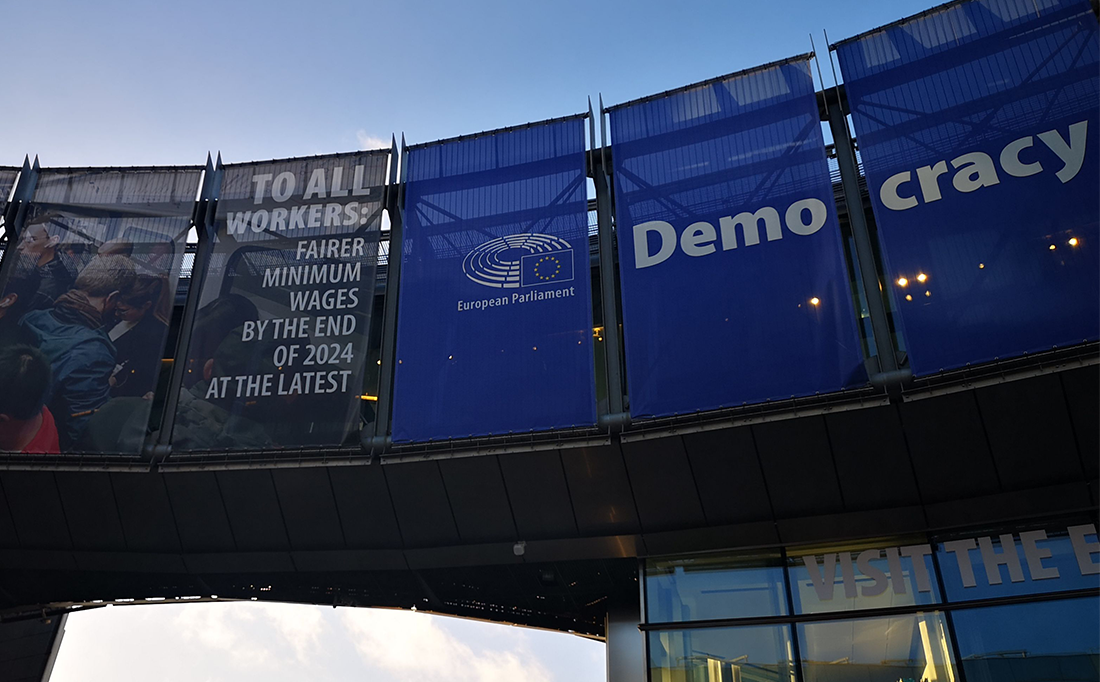This cross-border investigation lifts the lid on the European cleaning industry, uncovering the widespread exploitation of migrant workers, predominantly from non-EU countries such as Ukraine, Russia, Moldova, and Georgia.
Through meticulous reporting, journalists have revealed illegal recruitment networks and exploitative labour practices in EU states, including Germany, Sweden and Belgium. Many workers, unaware of their rights, are subjected to gruelling conditions, low wages and excessively long hours.
The investigation sheds light on deceptive recruitment tactics, often facilitated through social media ads that promise legitimate contracts. Instead, workers are given forged documents to falsely present themselves as EU citizens before being dispatched to wealthier EU countries.
Frequently employed by subcontracted companies, these workers find their employment conditions deliberately obscured. In the most egregious cases, conditions resemble modern slavery.
A recent raid in Munich exposed illegal labour practices involving Georgian and Turkmen cleaners, exemplifying a systemic issue replicated across numerous cities.
Subcontracting emerges as a central enabler of such abuses. By outsourcing cleaning services, companies create layers of obfuscation, making it difficult to trace responsibility.
Alarmingly, even prestigious EU institutions like the European Parliament are implicated. Reports from migrant cleaners working under subcontractors at the parliament reveal long hours, harsh treatment and intimidation tactics designed to silence them.
Workers have faced threats of being fired or retaliation for speaking with journalists or disclosing their conditions. These revelations stand in stark contrast to the EU’s professed commitment to labour rights, underscoring the lack of legal recourse for many exploited migrant workers within EU buildings.
In response, the European Labour Authority (ELA) has intensified cross-border inspections to tackle such abuses. However, the ELA’s efforts are hampered by limited resources and inconsistent cooperation from EU member states.
Loopholes in EU laws and weak enforcement mechanisms further exacerbate the issue, allowing exploitation to persist despite regulatory efforts.
This investigation is a product of the “Crossborder Journalism Campus”, an Erasmus initiative led by the University of Gothenburg, Leipzig University and the Centre de Formation des Journalistes in Paris.
As part of this collaborative effort, the project addresses critical intersections of labour and migration in the context of the European elections of June 2024. The team examined the intricate company chains in the cleaning industry, focusing on how subcontracting facilitates human exploitation.
The findings have been published by EUobserver in English and ZEIT Online in German.
